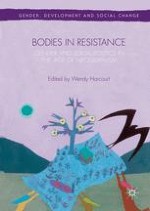2017 | OriginalPaper | Chapter
4. Moments of Movement Intersection in India: Informing and Transforming Bodies in Movements
Activate our intelligent search to find suitable subject content or patents.
Select sections of text to find matching patents with Artificial Intelligence. powered by
Select sections of text to find additional relevant content using AI-assisted search. powered by
